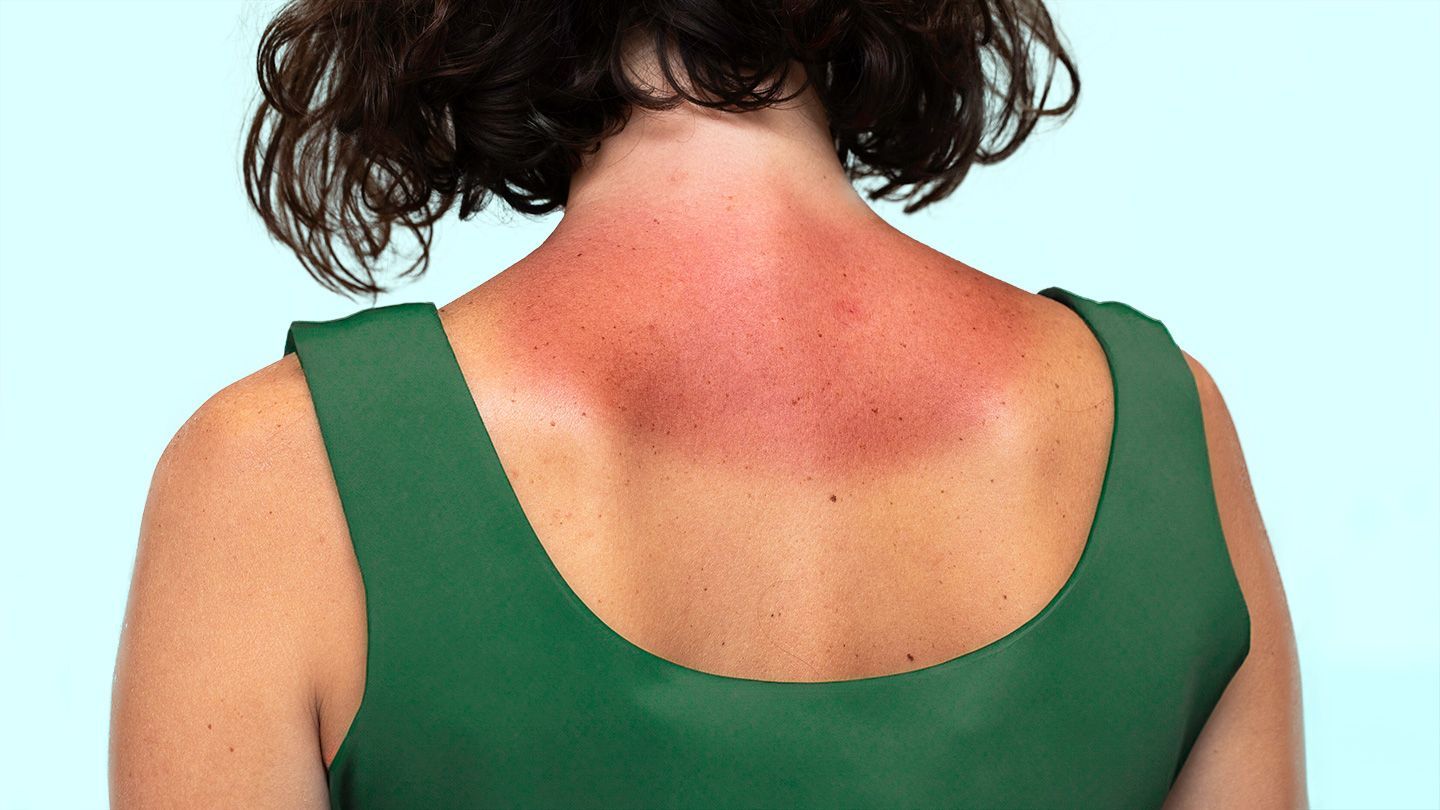Treatments for sun poisoning are similar to treating a sunburn. Here’s what you can do.
Immediate Steps
- The first thing to do is to get out of the sun immediately. Seek a cool, shaded, or air-conditioned area, advises Koickel.
- Next, hydrate. “Start drinking plenty of water or an electrolyte replacement solution,” Koickel says.
- Soothe skin by applying cool compresses or taking a cool shower or bath, says Koickel. (Avoid taking an ice-cold shower or bath or applying ice directly to the skin.)
- Rest. Give your skin time and opportunity to heal — out of the sun. “As your skin recovers from sun poisoning, I would recommend avoiding the sun entirely as it will be incredibly sensitive,” says Yadav.
Topical Treatments
When you wash, do so gently with fragrance-free cleansers and body wash until skin has healed, says Yadav. In addition to aloe, oat extracts and colloidal oats are other ingredients to look for in skincare products like body washes and lotions that soothe inflamed skin, she says.
For especially severe sun poisoning, your dermatologist may recommend using a topical steroid cream to reduce inflammation, says Kazlouskaya. Mild topical steroids are available over the counter, with stronger versions available by prescription. Talk to your healthcare provider or dermatologist about their recommendations for you.
Medications
NSAIDs like ibuprofen can help decrease discomfort and lessen pain. Acetaminophen (Tylenol) can also be used, says Kazlouskaya.
If you have significant itching, taking an over-the-counter antihistamine may help you control the urge to scratch, says Yadav.
Additionally, some research has found that taking a single high dose of vitamin D3 (100,000 to 200,000 IU) — available over the counter — shortly after severe sunburn onset may help to reduce skin inflammation. That said, be sure to speak with your doctor before starting any supplement to ensure it’s the right approach for you.
When to See a Doctor
Most of the time you will be able to treat sun poisoning at home, says Koickel. However, there are times when someone may need medical attention, she says. Call your healthcare provider or visit a place like urgent care if you experience the following signs or symptoms, Koickel advises:
- Large, painful blisters
- Infected areas of the skin
- A high fever (call your doctor if you have a fever over 104 degrees F)
- Fainting
- Vomiting
- Dehydration (dry mouth or dizziness)
Systemic symptoms like chills or vomiting can be indicators of heat stroke, says Mumtaz. “People should take it seriously because this can quickly progress to confusion, slurred speech, seizures, or coma,” she says.
Read the full article here




